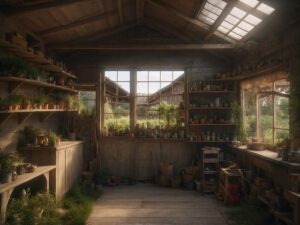In Shepparton, choosing between steel and wooden farm sheds requires careful consideration of environmental resilience, maintenance requirements, and long-term economic efficiency. Steel farm sheds are noted for their durability against Shepparton's extreme climate, offering protection against high winds, hail, and humidity, which minimizes the need for frequent repairs. They are also energy efficient, reducing cooling costs during hot summers. While steel's initial cost is higher than wood, its long-term savings on maintenance and longevity can outweigh the upfront investment, making it a sustainable and economical choice. Wooden farm sheds provide traditional charm and can be tailored to specific crop needs with their natural insulation properties. However, they require consistent treatment to maintain integrity against decay and pests. The decision between the two materials should also account for sustainability practices, including the environmental impact of production and lifecycle management. Ultimately, Shepparton farmers must analyze both economic and environmental factors to determine which material aligns best with their agricultural operations and ecological stewardship goals.
In Shepparton’s agricultural heartland, the choice between steel and wooden farm sheds extends beyond mere storage solutions. This article delves into a comprehensive comparison of these two structures, examining their durability, maintenance requirements, cost implications, and how they withstand Shepparton’s climate. We’ll explore their structural integrity in the face of environmental challenges, the benefits of customization for diverse crop needs, and the environmental footprint each option leaves. Additionally, we’ll consider local agricultural practices to inform Shepparton farmers on the most suitable farm shed for their operations.
- Understanding the Durability and Maintenance of Steel vs Wooden Farm Sheds in Shepparton
- Cost Analysis: Long-Term Investment of Steel vs Wooden Farm Sheds for Shepparton Agriculture
- Structural Integrity: The Longevity and Resistance to Elements in Shepparton's Climate
- Customization and Adaptability: Tailoring Farm Sheds to Your Shepparton Crop Needs
- Environmental Impact: Steel vs Wooden Farm Sheds – A Sustainable Choice for Shepparton Farmers
- Local Considerations: The Role of Shepparton's Agricultural Practices in Choosing Between Steel and Wooden Farm Sheds
Understanding the Durability and Maintenance of Steel vs Wooden Farm Sheds in Shepparton
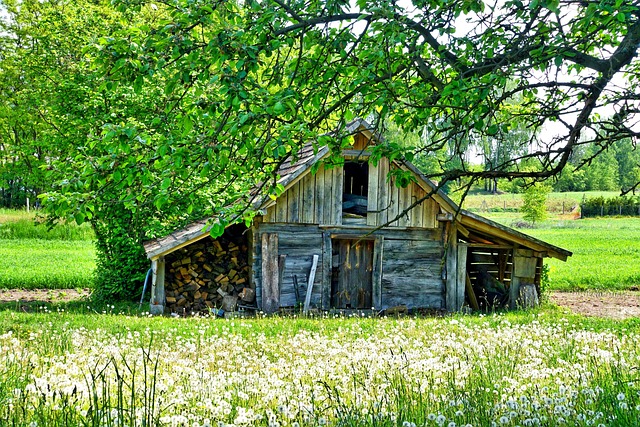
In Shepparton’s diverse agricultural landscape, farm sheds serve as critical structures for protecting equipment and crops. When considering durability and maintenance for farm sheds, both steel and wooden options present unique advantages and challenges. Steel farm sheds are renowned for their resilience against the elements, particularly in areas prone to high winds, heavy rains, or hailstorms common to Shepparton. The corrosion-resistant properties of galvanized steel ensure longevity, often outlasting wooden counterparts. Regular maintenance for steel structures typically involves checking for rust, cleaning the surface, and repainting as necessary, which can be less labor-intensive compared to the upkeep of wood.
On the other hand, wooden farm sheds offer a traditional aesthetic that complements the pastoral settings in Shepparton. Timber sheds require diligent maintenance, including periodic treatments with protective coatings to safeguard against rot, pests, and weather-related wear. The durability of wood can vary significantly based on the species chosen and the initial quality of construction. In terms of longevity, with proper upkeep, a well-maintained wooden farm shed can provide ample protection for many years, but the maintenance demands are more substantial than those of steel. Both materials have their place in Shepparton’s agricultural community; the choice between steel and wood for farm sheds should be informed by factors such as local climate, budget, desired lifespan, and aesthetic preferences.
Cost Analysis: Long-Term Investment of Steel vs Wooden Farm Sheds for Shepparton Agriculture

In the context of Shepparton’s agriculture sector, the choice between steel and wooden farm sheds is a significant decision that can impact longevity, maintenance, and overall cost-effectiveness. Steel farm sheds present an initial higher investment compared to their wooden counterparts, but this upfront cost is often a reflection of their durability and resilience against the elements. The rural environment of Shepparton, with its variable weather conditions including strong winds, potential hail storms, and high humidity, can be particularly challenging for wooden structures that may require frequent repairs or treatments to maintain structural integrity. In contrast, steel farm sheds are engineered to withstand these conditions without such maintenance-intensive care. Over time, the reduced need for regular upkeep and the ability to last several decades without significant degradation means that steel sheds can offer a more economical option in the long run.
Moreover, the cost analysis must consider not only the initial construction costs but also the potential for increased productivity that robust farm sheds can enable. Steel structures often facilitate better airflow and light penetration, creating an environment conducive to optimizing crop yields and livestock well-being. Additionally, their non-corrosive nature ensures a consistent performance over time without the risk of wood rot or pest infestations that could compromise the integrity and safety of the shed. When assessing the long-term investment for Shepparton’s agricultural needs, steel farm sheds emerge as a viable and potentially more cost-effective solution when factoring in their lifespan, maintenance requirements, and potential to enhance agricultural operations.
Structural Integrity: The Longevity and Resistance to Elements in Shepparton's Climate
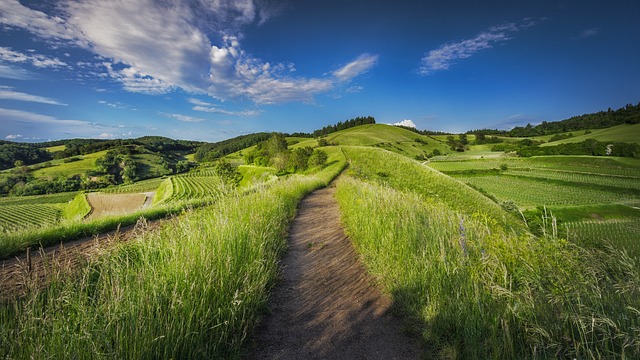
In Shepparton, where the climate can be harsh with its varying weather conditions, the structural integrity of farm sheds is a critical concern for farmers and rural property owners. Steel farm sheds stand out for their exceptional longevity and resistance to environmental pressures. The robustness of steel is particularly advantageous in Shepparton’s context, as it can withstand the extreme temperatures, from scorching summers to bitterly cold winters, without warping or degrading. Additionally, steel’s resilience against harsh elements like hail, high winds, and heavy snowfall ensures that valuable agricultural equipment and supplies are protected year-round. Unlike wooden structures, which may require regular maintenance and treatment to prevent decay and pest infestation, steel farm sheds in Shepparton demand less upkeep over their long lifespan.
Wooden farm sheds, while traditionally favored for their natural aesthetic and lower initial cost, may not match the longevity and resilience offered by steel. Over time, wood can succumb to rot, insect damage, and other weather-related wear and tear, potentially leading to costly repairs or replacements. In Shepparton’s unique climate, where humidity levels can fluctuate significantly, wood’s susceptibility to moisture can be a particular drawback. Steel, with its durable, corrosion-resistant coatings, offers a more sustainable long-term solution for protecting agricultural assets against the elements, making it an increasingly popular choice among Shepparton farmers looking for reliability and low maintenance in their farm sheds.
Customization and Adaptability: Tailoring Farm Sheds to Your Shepparton Crop Needs
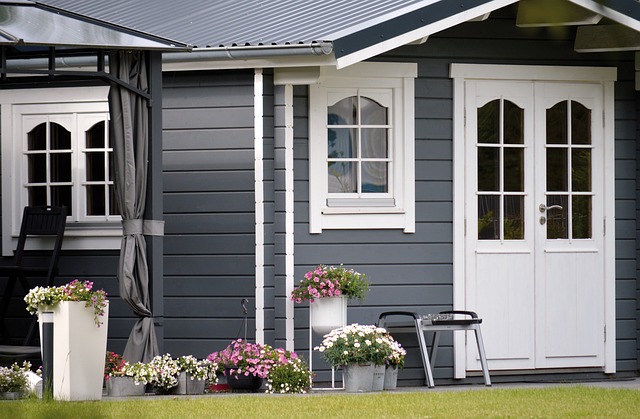
When considering the construction of farm sheds in Shepparton, the choice between steel and wooden structures offers unique advantages for customization and adaptability tailored to your crop needs. Steel farm sheds present a durable and versatile option, capable of withstanding the variable climate conditions that characterize Shepparton. Their robust nature allows for easy modification and expansion to accommodate changing storage requirements or evolving agricultural practices. The strength and resilience of steel mean it can be engineered to support specific types of crops, ensuring a secure environment for sensitive produce.
On the other hand, wooden farm sheds offer a more traditional approach with a versatile design that can be customized to suit various crop storage needs. Timber’s natural insulation properties make it an excellent choice for maintaining optimal humidity and temperature levels, crucial factors for preserving certain crops. The adaptability of wood also allows for personalized modifications, such as incorporating ventilation systems or additional support beams, which can be tailored to the specific demands of your agricultural activities in Shepparton. Both materials offer distinct benefits, and the choice between steel and wooden farm sheds should align with your operational needs, crop type, and long-term planning for your Shepparton farm.
Environmental Impact: Steel vs Wooden Farm Sheds – A Sustainable Choice for Shepparton Farmers
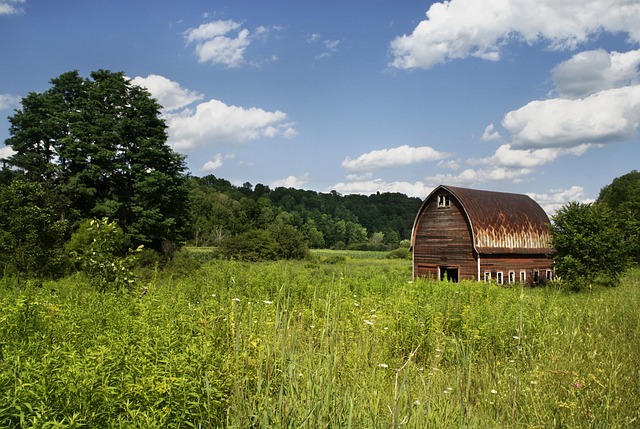
In Shepparton, where agriculture forms a cornerstone of the local economy, the choice between steel and wooden farm sheds carries significant environmental implications. Steel farm sheds often boast a higher recyclability rate compared to their wooden counterparts, reducing waste in the long term. The production of steel sheds involves a more energy-intensive process initially, but with advancements in green manufacturing techniques, the carbon footprint associated with steel can be mitigated. Moreover, the durability of steel means that it can last for decades without significant maintenance, which translates to less energy expenditure over time.
On the other hand, wooden farm sheds are constructed from renewable resources, making them a potentially more sustainable option if managed responsibly. The process of sourcing timber sustainably is crucial; farmers in Shepparton who opt for wood should consider materials from well-managed forests where reforestation practices are in place to maintain ecological balance. Both types of sheds have their merits, but the environmental impact extends beyond initial construction and includes factors such as maintenance, longevity, and the lifecycle of materials used. Farmers in Shepparton must weigh these considerations carefully, with an eye towards long-term sustainability, to determine which shed type aligns best with their environmental stewardship goals. The choice between steel and wooden farm sheds is thus not merely a matter of preference but a strategic decision that can influence the environmental footprint of agricultural operations in the region.
Local Considerations: The Role of Shepparton's Agricultural Practices in Choosing Between Steel and Wooden Farm Sheds
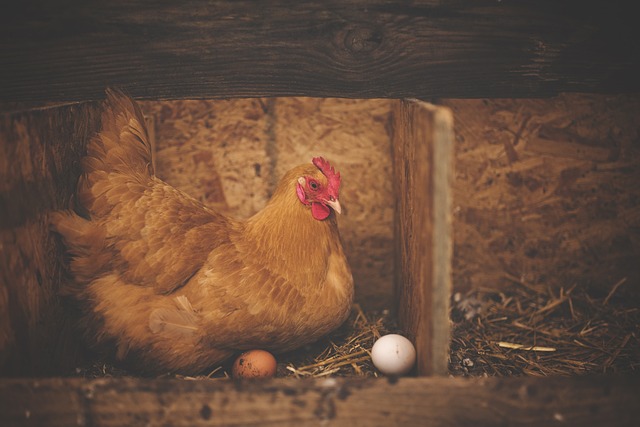
In Shepparton, a region with a rich agricultural heritage, the choice between steel and wooden farm sheds is influenced by local environmental factors, economic considerations, and the specific needs of the farming operations. Shepparton’s climate, characterized by hot summers and moderate winters, plays a significant role in determining the durability and maintenance requirements of these structures. Steel farm sheds offer superior resilience against the harsh UV rays that can degrade wooden structures over time. Their ability to withstand extreme weather conditions, including heavy rains and potential hailstorms, makes them a preferred choice for local farmers aiming for longevity and minimal upkeep. Conversely, wooden farm sheds, while traditionally favored for their aesthetic appeal, require more frequent treatments to prevent decay and pest infestation, aligning with the seasonal rhythm of Shepparton’s agricultural cycle.
Economic factors also weigh heavily on the decision-making process for farmers in Shepparton. Steel farm sheds may carry a higher initial cost compared to wooden ones but provide long-term savings through their robustness and lower maintenance needs. The cost-effectiveness of steel is further amplified by its energy efficiency, which can reduce cooling costs during the hot Australian summers. Wooden farm sheds, while potentially less expensive upfront, may incur hidden costs over time due to regular treatments and repairs necessary to maintain their integrity. Local farmers must carefully consider these factors in the context of Shepparton’s agricultural practices, ensuring that their choice of farm shed material aligns with both the economic viability of their operations and the environmental demands of the region.
In concluding our discussion on Farm Sheds in Shepparton, it’s evident that both steel and wooden options serve as valuable assets for local farmers. Each material presents unique advantages: steel farm sheds offer superior durability and resistance to Shepparton’s climate, alongside lower long-term maintenance costs, making them a sound investment. Wooden farm sheds, on the other hand, provide greater customization opportunities tailored to specific crop needs. Considering environmental impact, both options have their roles; steel’s sustainable production and longevity contrast with wood’s renewable nature. Ultimately, Shepparton’s farmers must weigh these factors against local agricultural practices to make the best choice for their operations. The decision between steel and wooden farm sheds is multifaceted, hinging on individual needs, budget considerations, and environmental priorities. Farmers in Shepparton have a choice between robust and adaptable structures that can significantly impact their productivity and profitability.
